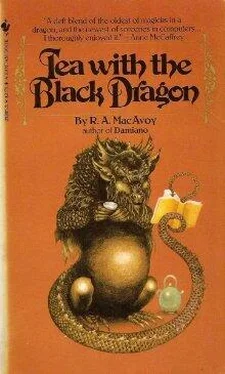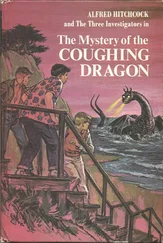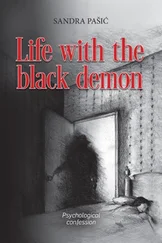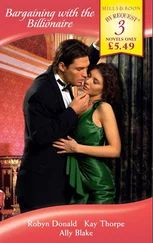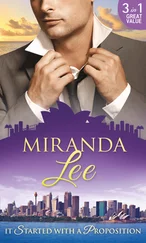“A job recruiter? No. Hardly. I represent a more personal interest.” His voice dropped almost to a whisper. “The lady with the talent for driving is Elizabeth Macnamara’s mother.”
Frisch peered covertly at the top of Martha’s head and at her obliviously hunched shoulders. The control box dangled unnoticed from her wrist, for she had discovered the more adult fascination of computer checkers.
“Why doesn’t she ask her daughter herself?” he muttered uneasily. “I hardly know Liz.”
“Elizabeth has disappeared, Mr. Frisch.”
Frisch blinked at the word. “Disappeared? Jeez.”
“Mrs. Macnamara lives in New York, and so she’s slipped out of touch with Liz, who seems to have quit her job and moved from her last known address. We do not know who her friends are.”
“I’m not the one to ask,” said Frisch, for Long’s ears only. “Liz’s a bit of a pushin’ baby, if you know what I mean.”
Dryly, Mayland Long admitted he did not. “I’ve gathered the impression that Miss Macnamara is a rather ambitious young woman and she keeps to herself. Is that what it is to be ‘a bit pushin’ baby?’ ”
Frisch sighed and shrugged, with a half-smile that was one-quarter apology. “Not quite. She can be friendly when she wants to. When she thinks a guy might be… good for her career. She got along with Peccolo.”
Mr. Long’s eyes widened. Frisch hurried to explain “She was his T.A.—teaching assistant, you know? They were very chummy, for a while. But it didn’t last.”
“Why not?”
The blond fished with one hand ’til he snagged the back of a high stool and pulled it under him. Once seated, he remained in thought for a count of five. “I think it was this way. Liz wants to be a manipulator—the kind who controls. Peccolo is that kind. Much better at it. He used her when it was supposed to be the other way around. She put in a lot of hours on the machine for him—designing his lessons, cleaning up his math… Peccolo is a good teacher, fine organizer—all that jazz…” Frisch, who had been talking to the glass counter top, suddenly sought out the other’s eye. “But Liz has the technical brain. She’s real good.” The gaze slid away again. “Too bad technique ain’t everything.”
The dark man smiled slowly. His fingers drummed on the glass. “You’ve knocked heads with her? Don’t worry about offending me; I’ve never met the young lady.”
Frisch shuffled in place, embarrassed. “Well—no. Not me. I avoided Liz, you see, so I wouldn’t.”
“Do you think Peccolo would know where she is now?”
Fred Frisch shrugged once again. “Better than I,” he said. “What’s your part in this. Detective?”
Mayland Long laughed. Martha looked up. “Worse and worse! I’d rather be a headhunter!”
Frisch looked unconvinced.
“Mrs. Macnamara doesn’t speak the jargon, you see, and my field is languages.” Long found Martha standing beside him. Gently he took the controls of the racer from her hand and returned the box to Frisch.
“That fellow went to Stanford, didn’t he?” asked Martha, as she was propelled across the busy street.
Mayland Long, in a graceful inversion of traditional politeness, waited for her to let herself in the driver’s side, then swung around the front of the car and waited for her to reach over and unlock his door.
“So you were listening?” he replied, once in the quiet of the closed car.
“Oh no. I heard you say ‘modistics’ and immediately tuned out the conversation, since I would not be able to understand a word. I knew the fellow was from Stanford because he was blond, and there was a bicycle locked to the post outside.” Her voice trailed off. She was thinking of something.
“Well, however you came upon it, the supposition is correct. He is a Stanford alumnus, and knows your daughter slightly.”
Martha nodded. “Only slightly?”
“He has given us another name. Perhaps a more important one. Back to campus,” he commanded, and the car lurched obediently forward.
“Mayland—,” she began, as she found a space in the flow of traffic, entered and took it with unexpected competence. “I enjoyed myself back there. I think I missed my calling in life.”
The dark man smiled and his arm, braced against the dash, relaxed to the seat. “You should have been a computer engineer?”
“Sweet Jesus, no! I should have sold toys.”
“I’m sorry. I haven’t the least idea,” said the professor. He leaned back in his leather chair until the springs creaked; his pale fingers drummed against the mahogany desktop. It appeared that the conversation was over early.
Martha frowned. Her blue china eyes shone like beads. Mr. Long and she had spent the last half hour being wonderfully lost among the Spanish red sandstone buildings and the dusty live oaks of Stanford campus. They had stopped to nose into the chapel, with its gold murals and gaudy, loud, Victorian glass, and had known the satisfaction of excoriating the place together. Now it was getting hot and she was tired. Peccolo’s attitude was no help.
Mayland Long drew breath slowly and spoke. “I believe she assisted you in your researches until quite recently…” His calm had an edge on it—an edge which told Martha she had better bite her tongue and leave this matter to him. It spoke another message to Dr. Peccolo.
“Recently? No. Not at all. She’s been gone almost two years, now.” He pulled himself erect again and focused over the expanse of the desk at Mr. Long. Dr. Peccolo was a much heavier man than the Eurasian, fair and stocky.
“Let me tell you something about graduate students, Mr.—uh—Long. By the way, are you in the legal profession?”
The answer was dry. “Not exactly.”
“Graduate students. They come and go. Very fast. MS is two years work. A doctorate… well, Elizabeth Macnamara was not headed for the doctoral program. She worked for me: grading papers, coding, handling technical correspondence. I’ve had two students—one per year—in that position since she graduated. No reason I should keep in touch. I’m sorry.”
The last two words alone were addressed to Martha Macnamara, who sat to one side of the two men, between a wooden table piled high with printouts and a neat glass case containing, among other objects of interest, a diploma from Massachusetts Institute of Technology, a certificate of merit from Advanced Micro Devices, and a gold urn on a marble base with the words DENVER INVITATIONAL 1959 engraved upon the side. She burned with the desire to know what sort of invitation Dr. Peccolo had received from Denver in 1959. She heard his words only distantly.
Mayland Long did not allow the interview to slip from him. “Liz Macnamara was one of the more useful finds among this flowing river of students, was she not?”
Color deepened in the professors flat face and the muscles along his jaw gained sudden prominence. “Just how do you mean that?” he growled. His right hand plucked up a rapidograph pen and closed to a tight fist around it.
Mayland Long retained advantages of pigment and breeding. If this sudden confrontation roused him in any way it was not for the world to know. “I had heard that Miss Macnamara was quite an apt student. And diligent. Not all apprentices are like that, unless things have changed since I was young.”
“She was quite competent for the sort of work I had her doing,” admitted Dr. Peccolo, with no great grace. “Which was, as I told you, coding and correspondence. She had marketable skills—at least marketable today, in a society where demand has outstripped the supply of technical expertise, in a computer ghetto like the Santa Clara Valley… I helped her to develop these skills, and I paid her while I did so. I helped her find her first job, with Floyd Rasmussen at FSS, and I advised her against leaving it, when she came to me for advice. She has no cause for complaint.”
Читать дальше
